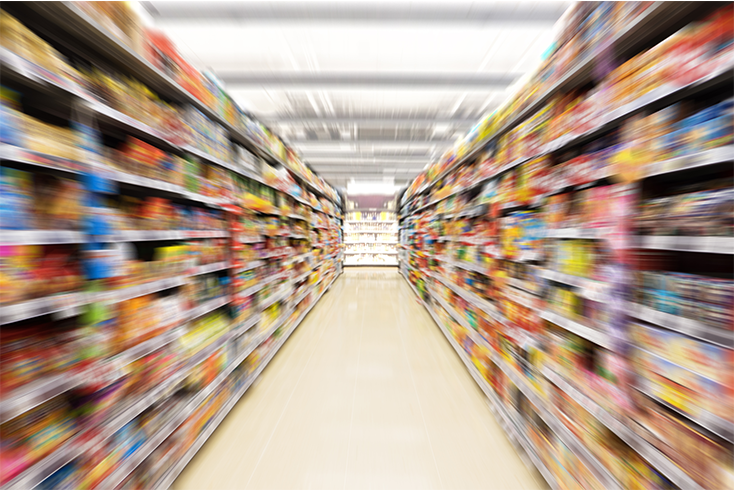Media has a problem with the C-word but consumers are ahead of us

Opinion
The challenge brands and media face is in acknowledging their place in disposable culture as they seek a new balance for consumption.
The advertising community’s role is not only to encourage people to consume, but also to make them feel great about it. However, our feelings around consumption are clearly changing, not just in terms of sustainability but also as the cost-of-living crisis that weighs on people’s minds.
As part of our most recent trends research, the data revealed that in the UK nearly half of consumers (47%) feel guilty about the amount they consume. With 16% feeling guilty all the time.
The solution from a consumer’s perspective seems to be about encouraging a culture that repairs and renews items already invested in. The Ellen MacArthur Foundation has estimated that doubling the average number of times a piece of clothing is worn could halve the greenhouse gas emissions of the entire fashion industry.
Our audience data backs this up too; 58% of people say they would prefer to repair, mend, or update an item already owned rather than repaying for it. 30% strongly agreed, and 62% believed it should be a brand’s responsibility to repair items when they are damaged or break down.
This trend feels counter intuitive to how capitalism and advertising are traditionally perceived. Brands almost always focus on the ‘new’, the cutting edge of fashion and innovation. Profit usually stems from stacking high and selling cheap. But as business margins are squeezed, supply chains falter, and as consumerism shifts a gear, the idea of always attracting new customers is being reviewed and questioned.
Indeed, on 8 July 2021, the UK put into law the ‘Right to Repair’, meaning that this year consumers will be able to seek repairs beyond the manufacturer on some white goods, either repairing an item themselves or via a third party. In the past, brands such as Apple have been notoriously closed and have now had to rethink, recently announcing a ‘Self Service Repair’ allowing customers who are comfortable with completing their own repairs access to Apple parts and tools.
This could be the start of a radical shift in business and brand behaviour. During the turbulence caused by the pandemic, 73% of CMOs have focused on customer retention in 2021.
All media comes with a consumption tag
Brands need to find profitable new ways to survive on past relationships as well as the new, supporting the products they have already put into the world. Sub-brands or departments are being built to support, repair and re-engage with customers such as Patagonia’s ‘Worn Wear’, which resells garments that only need a little TLC.
Even when items can’t be repaired, brands that offer a recycle system still relieve consumers of the pressure of disposing items themselves and provide another moment of brand connection. This model builds on the established subscription model, which spans everything from food to makeup, plants and clothing, and can lock in powerful loyalty for brands.
In terms of the media industry, we must start to think more intelligently too.
Our media campaigns, from billboards to TV production to NFTs, are all pieces of creative that come with their own carbon consumption tag. Carbon calculators from the IPA and agency models such as Publicis Media’s A.L.I.C.E can put tangible numbers against plans providing clients with clarity and a means to offset and then of course a plan to reduce. For example, Starcom’s recent campaign for E.ON with Good-Loop attaches charitable donations to plant trees and offset the campaign’s emissions.
Great innovation is already being seen across all media, but we need to be brave and continue to hunt down and support sustainable approaches and options.
Media as a service, not a product
How can tangible media repair the environments it sits within, and renew consumers’ beliefs and interest in the fight against climate change?
There are many ways we can do this. From supporting the media owners championing awareness and solutions to the crisis (consider The Guardian’s stance that all their journalists are ‘climate journalists now’) to where media itself has a positive environmental affect (think pollution absorbing paint and ink).
Can we think smarter about the ways in which we activate our digital campaigns (do they need to be always on? Are we able to activate ads when the UK national grid is on renewable mode?) Or minimise wastage by excluding audiences and negative matching search keywords so ads don’t appear for irrelevant searches?
The challenge brands and media face is in acknowledging their place in disposable culture as they seek a new balance – trying to highlight new, exciting products while encouraging people to care for and keep the items they have already.
If we see media as a service rather than a product, it shifts our focus to that of ever greater effectiveness and purpose that goes beyond its tangible use. And advertising will be crucial to this shift in business priorities, where education, inspiration and storytelling will be key for brands as they transform their sales narrative.
Heather Dansie is insights director at Starcom



